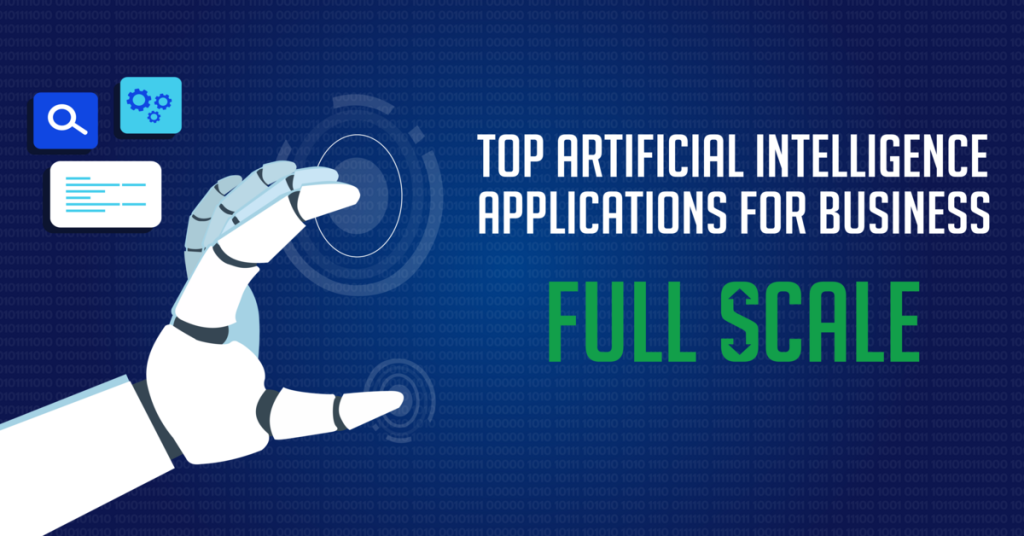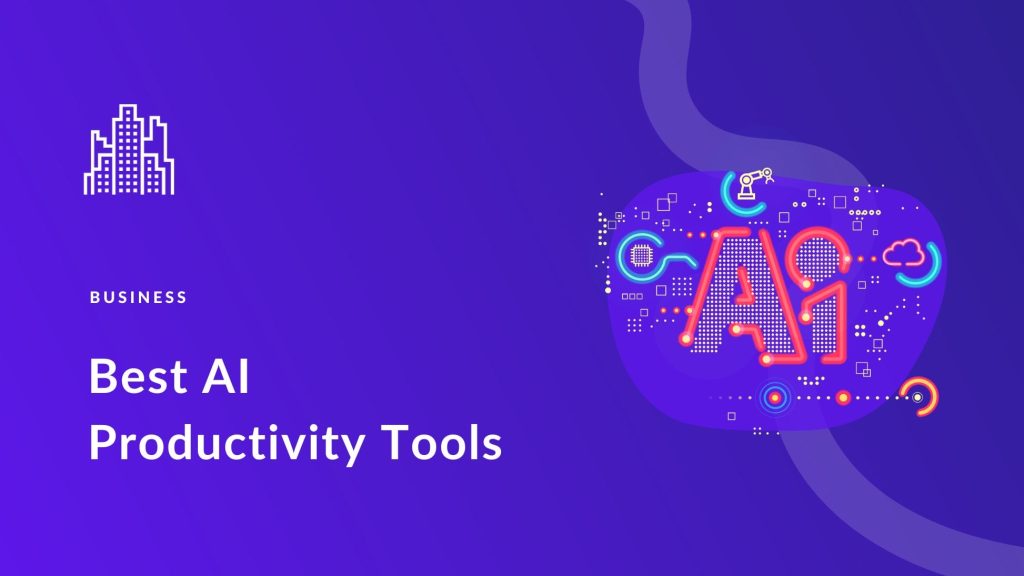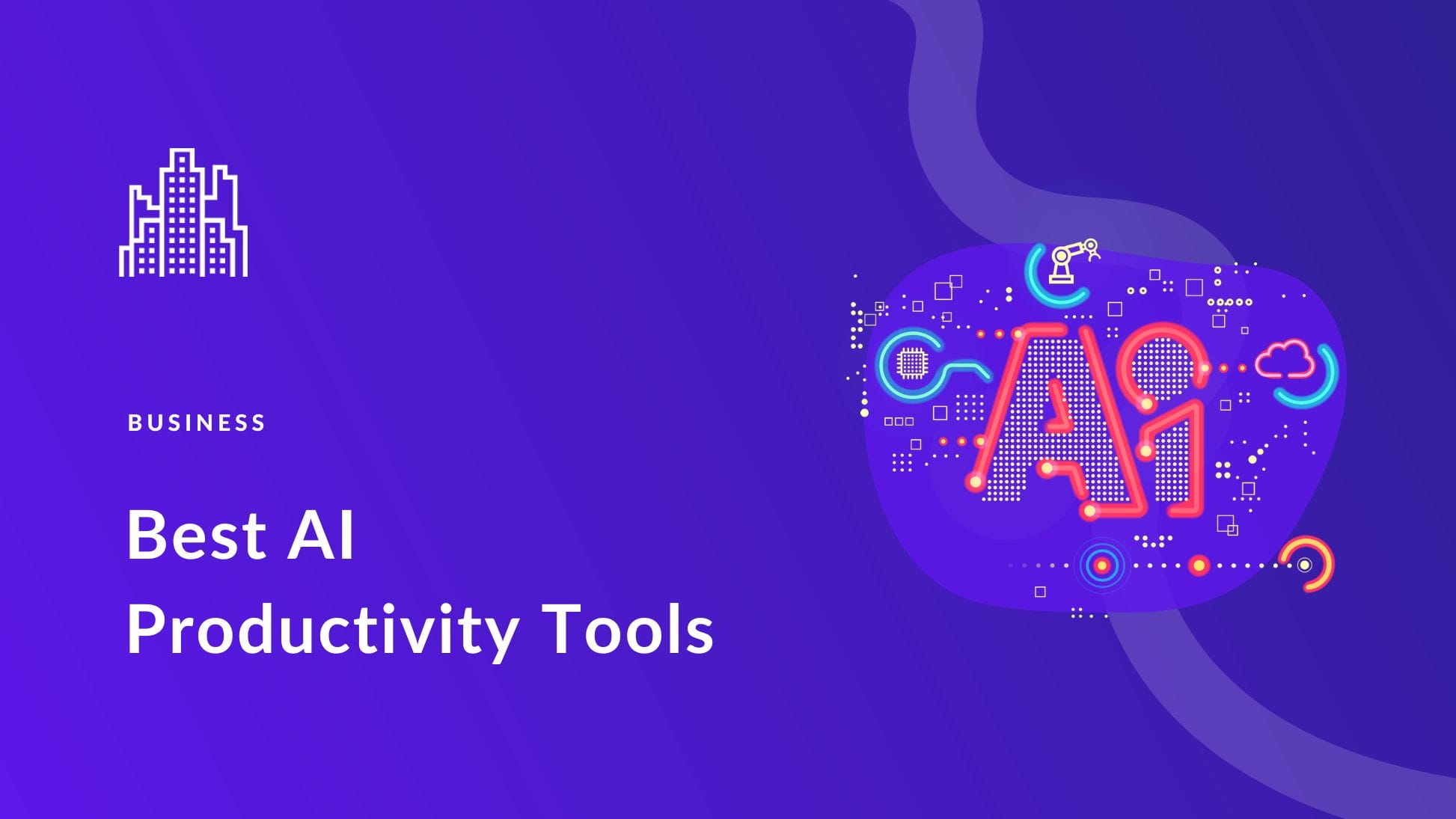Business landscapes have long been influenced by artificial intelligence, aiding countless companies in streamlining their procedures and adopting data-oriented strategies. This includes automating mundane operations, performing intricate data analytics, and exploiting past commercial data.
In the current era, if an enterprise isn’t embracing AI in its infrastructure, it may find itself lagging behind competitors, losing opportunities for cost-saving, and overlooking a myriad of customer-centric prospects.
In this comprehensive guide, we’ll delve into the significance of AI in the commercial sector, explore the prevalent types of AI in the market, and demonstrate how these can enhance operational efficiency while curbing expenditure.
Key Varieties of AI for Enterprises

AI can assist businesses in the following crucial areas:
- Automating Processes
- Cognitive Analysis
- Cognitive Interaction
- Recommended: Top AI Websites of 2023
1. Automating Processes
The term “process automation” refers to an AI application designed to expedite and simplify tasks. For instance, AI can be employed to automate repetitive tasks like clerical work or email distribution.
Process automation is the most widespread (and generally the most economical) type of AI deployed in businesses. By minimizing administrative duties, enterprises might be able to downsize their workforce, rendering it a perfect example of a cost-effective, high-yield investment.
A more specific form is “Robotic Process Automation” (RPA), which uses software algorithms to independently perform repetitive tasks typically handled by human staff. This is achieved through API (Application Programming Interface) usage and interactions with software interfaces.
An enterprise might utilize RPA to:
- Implement natural language processing for essential points in legal documents
- Maintain optimal inventory levels through order automation
- Update client records automatically using information from emails and contact centers
- Automate billing systems
2. Cognitive Analysis
AI tools in business can process vast amounts of data. This falls under the category of “cognitive analysis,” an analytics tool that operates on deep learning algorithms. It searches for patterns in your data, helping to predict future outcomes in certain scenarios.
For instance, cognitive analysis can interpret consumer behavior from past records. This can be leveraged to anticipate which products your customers are likely to purchase next. Businesses can also apply cognitive analysis in areas like:
- Real-time fraud prevention in credit and insurance scenarios
- Providing insurance quotes based on a customer’s claim likelihood
- Extreme personalization for developing marketing strategies using individual customer data (like location, purchase history, etc.)
- Cognitive analysis heavily relies on data. It’s modeled and trained on vast data sets, and as it processes new data, its predictive capabilities continually enhance over time.
3. Cognitive Interaction
In an age where immediate information access is expected, cognitive interaction plays a crucial role. This type of AI uses “natural language processing” (which deals with human language) to provide results based on user inquiries or prompts.
Common instances are chatbots and intelligent agents, designed to mimic human conversation. Businesses employ these bots to answer frequently asked queries from customers and employees.
Businesses can also apply cognitive interaction in scenarios like:
- Providing 24/7 chat support to address common issues such as password reset requests and financial quotations
- Medical software that assists in devising treatment strategies based on a patient’s health status
- Product and service purchase recommendations
- Supporting employees with device troubleshooting, HR policies, and employee benefits.
- One of the primary benefits of this type of AI is offering businesses a means to interact with clients outside of office hours. Companies can also pair cognitive interaction with cognitive analysis for customized recommendations.
What Are the Key Advantages of AI in Businesses?

Utilizing AI-powered products and systems offers several benefits, such as accelerated progress, speedy data analytics, and natural language processing. Here’s how these three major benefits could boost businesses today:
Data Analytics
Companies require data to substantiate their decisions, particularly in relation to planning and investing. They can garner valuable insights into their business facets using data analytics.
Automation
AI reduces unnecessary time and effort spent on mundane procedures. This allows employees to focus on value-adding tasks. Owing to its predefined code, automation also tends to be more accurate.
Natural Language Processing
Communication is paramount in business, and natural language processing helps overcome many barriers. For example, using NLP, AI can understand inquiries and provide responses in a customer’s native language.
How Is AI Employed in Business?
AI isn’t solely useful for streamlining processes. It can also play a pivotal role in sales, marketing, inventory control, accounting, human resources, customer service, and much more.
Related: Want to delve deeper into AI? Explore Coursera’s Machine Learning Specialization.
Sales
A 2022 study surveyed 332 sales managers, revealing that 42% of them reported their company was only using Customer Relationship Management (CRM) software to store lead and customer data. Additionally, a surprising 15% claimed that their company wasn’t using CRM at all.
The study also found that, on average, salespeople spend only 32% of their workday actually selling, while 68% of their time is consumed by non-revenue-generating tasks.
By integrating AI into their sales strategy, sales-oriented companies can potentially enhance lead quality, predict upcoming market trends, and automate prospect contact. This could result in increased efficiency and cost reduction.
Lead Prioritization
This involves “lead scoring,” a method of assessing the quality and value of a particular lead. By ranking leads with AI, companies can better understand whom to engage with and how to convert them into paying clients.
Market Demand Forecasting
AI can also help anticipate the kinds of products and services that consumers will likely demand in the future. This is achieved by AI accessing historical sales data and consumer interactions.
Email Outreach
One of the keys to boosting sales is reaching out to clients to convert leads and introduce new products. With AI-based email marketing, the AI can learn
By learning how to use these tools, one can make his or her business more efficient, dynamic, and adaptable. By making wise investments, companies can better adapt to the constantly changing business environment. This bodes well for our modern business era.
